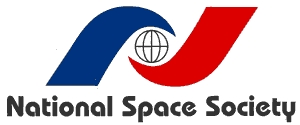Home > Press > National Space Society Calls For Less US Dependence On Russian Space Technology
 |
Abstract:
The Washington DC-based National Space Society (NSS) strongly recommends in a position paper issued today that Congress should fully support the Commercial Crew program in order to restore independent access to the International Space Station (ISS), prepare to operate the ISS without Russian support, again make low-cost access to space a primary goal of U.S. space policy, and avoid replacing the RD-180 engine manufactured in Russia with a single new engine funded via cost-plus development.
National Space Society Calls For Less US Dependence On Russian Space Technology
Washington, DC | Posted on July 15th, 2014NSS recommends that Congress should maintain competition among Commercial Crew providers while avoiding the imposition of additional contractual obstacles to this program. The U.S. must be self-sufficient in rocket engines for critical functions, both civilian and military. If Congress and the Administration decide a new rocket engine program is justified to replace the RD-180 (currently used in the Atlas V), it must result in multiple prototype liquid fueled hydrocarbon rocket engine development winners to promote competition and innovation and stimulate the entire U.S. aerospace industrial base. To increase affordability, to promote risk-sharing and to incentivize results instead of effort, the United States Government might use "other transactions authority" methods that were used to successfully develop the RS-68 and Merlin rocket engines.
Russia's Deputy Prime Minister Dmitry Rogozin has threatened to pull out of the ISS in 2020, after which the U.S. portion of the ISS would fall to Earth and be destroyed. Having been warned 6 years in advance, the United States should move systematically but immediately to develop commercial U.S. habitation and re-fuelable propulsion modules or other means of reboosting the ISS before 2020. Paul Werbos, NSS Executive Vice President, said "The US space program has become far too dependent on Russian technology. It is long past time to change that situation."
The position paper can be found at:
http://www.nss.org/legislative/positions/NSS_Position_Paper_Dependence_on_Russia_2014.pdf .
####
About National Space Society
NSS is an independent non-profit educational membership organization dedicated to the creation of a spacefaring civilization. NSS is widely acknowledged as the preeminent citizen's voice on space, with over 50 chapters in the United States and around the world. The Society publishes Ad Astra magazine, an award-winning periodical chronicling the most important developments in space. A bio for Paul Werbos can be found at http://www.nss.org/about/bios/werbos.html .
For more information, please click here
Contacts:
Lynne Zielinski
Phone: 202.429.1600
Copyright © National Space Society
If you have a comment, please Contact us.Issuers of news releases, not 7th Wave, Inc. or Nanotechnology Now, are solely responsible for the accuracy of the content.
| Related News Press |
News and information
![]() Simulating magnetization in a Heisenberg quantum spin chain April 5th, 2024
Simulating magnetization in a Heisenberg quantum spin chain April 5th, 2024
![]() NRL charters Navy’s quantum inertial navigation path to reduce drift April 5th, 2024
NRL charters Navy’s quantum inertial navigation path to reduce drift April 5th, 2024
![]() Discovery points path to flash-like memory for storing qubits: Rice find could hasten development of nonvolatile quantum memory April 5th, 2024
Discovery points path to flash-like memory for storing qubits: Rice find could hasten development of nonvolatile quantum memory April 5th, 2024
Govt.-Legislation/Regulation/Funding/Policy
![]() NRL charters Navy’s quantum inertial navigation path to reduce drift April 5th, 2024
NRL charters Navy’s quantum inertial navigation path to reduce drift April 5th, 2024
![]() Discovery points path to flash-like memory for storing qubits: Rice find could hasten development of nonvolatile quantum memory April 5th, 2024
Discovery points path to flash-like memory for storing qubits: Rice find could hasten development of nonvolatile quantum memory April 5th, 2024
![]() Chemical reactions can scramble quantum information as well as black holes April 5th, 2024
Chemical reactions can scramble quantum information as well as black holes April 5th, 2024
Announcements
![]() NRL charters Navy’s quantum inertial navigation path to reduce drift April 5th, 2024
NRL charters Navy’s quantum inertial navigation path to reduce drift April 5th, 2024
![]() Discovery points path to flash-like memory for storing qubits: Rice find could hasten development of nonvolatile quantum memory April 5th, 2024
Discovery points path to flash-like memory for storing qubits: Rice find could hasten development of nonvolatile quantum memory April 5th, 2024
Aerospace/Space
![]() Under pressure - space exploration in our time: Advancing space exploration through diverse collaborations and ethical policies February 16th, 2024
Under pressure - space exploration in our time: Advancing space exploration through diverse collaborations and ethical policies February 16th, 2024
![]() Bridging light and electrons January 12th, 2024
Bridging light and electrons January 12th, 2024
![]() Manufacturing advances bring material back in vogue January 20th, 2023
Manufacturing advances bring material back in vogue January 20th, 2023
Alliances/Trade associations/Partnerships/Distributorships
![]() Chicago Quantum Exchange welcomes six new partners highlighting quantum technology solutions, from Chicago and beyond September 23rd, 2022
Chicago Quantum Exchange welcomes six new partners highlighting quantum technology solutions, from Chicago and beyond September 23rd, 2022
![]() University of Illinois Chicago joins Brookhaven Lab's Quantum Center June 10th, 2022
University of Illinois Chicago joins Brookhaven Lab's Quantum Center June 10th, 2022
|
|
||
|
|
||
| The latest news from around the world, FREE | ||
|
|
||
|
|
||
| Premium Products | ||
|
|
||
|
Only the news you want to read!
Learn More |
||
|
|
||
|
Full-service, expert consulting
Learn More |
||
|
|
||








